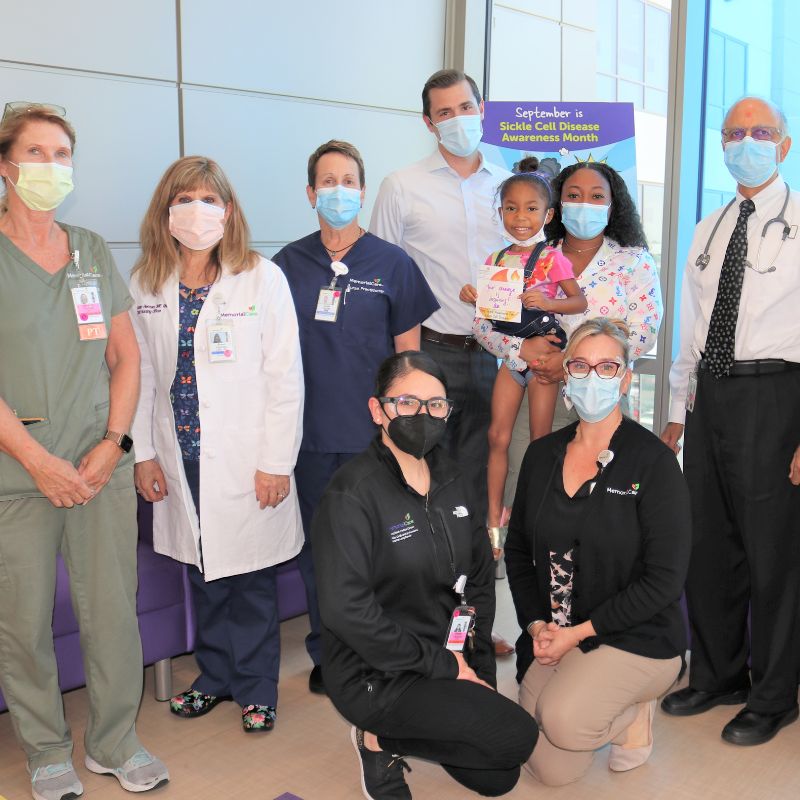Sickle Cell Disease is an inherited blood disorder that causes red blood cells to become misshapen. Instead of being round, some cells are shaped like a sickle or crescent. These abnormal cells can cause blockages in blood flow anywhere in the body. Sickle cell disease affects around 100,000 Americans and occurs in about 1 one in every 365 Black or African-American births and about 1 in every 16,300 Hispanic-American births.
The hallmark of sickle cell disease is severe pain which can lead to frequent absences from school or work as well as emergency department visits and hospital admissions. Persons with sickle cell disease often have chronic anemia which can result in rapid fatigue that can disrupt daily activities. In addition, children with sickle cell disease are at increased risk of severe infection, and both children and adults with sickle cell disease have an increased risk of stroke and serious complications to other organs in the body.
Fortunately, for families in Southern California, the Sickle Cell Center at the Jonathan Jaques Children’s Cancer Institute at MemorialCare Miller Children’s & Women’s Hospital Long Beach is one of the few sites in the region dedicated to treating Sickle Cell Disease. The center is staffed by board certified pediatric hematologists and nurse practitioners and provides sickle cell diagnoses, treatment and long-term health management for patients from birth through young adulthood. Each child’s treatment plan is individually focused using both national and evidence-based practice guidelines to direct care.
“For children and teens living with sickle cell disease, our goal is to help them live their best life,” says Leigh Hunter, MSN, RN, CPNP, lead nurse practitioner at the Sickle Cell Center. “This is especially important as they transition to adult care where they may not have the same support that they receive at our center. We want to ensure that they are prepared to manage their disease and advocate for themselves in regard to their healthcare.”
In addition to the exceptional medical care the patients receive, the center also offers psychosocial programs such as family support, disease education, counseling, and school support services.
“We are extremely grateful to be caring for and engaged with this community,” says Hunter. “Because of the prevalence of this disease in communities of color, we see firsthand the effects of racial disparities found in healthcare, and we hope that our daily work moves our society further ahead in the quest for quality healthcare for all.”

